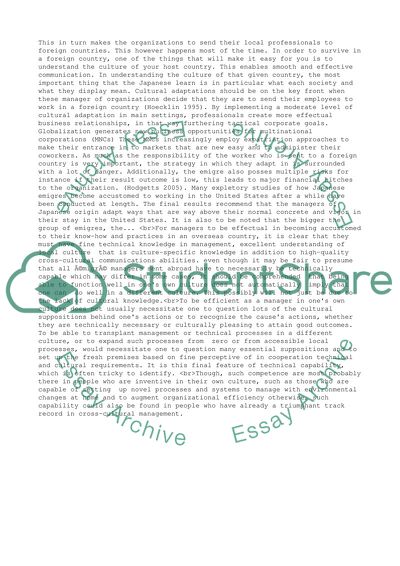Cite this document
(“Exploring how Japanese managers adapt in the United States Essay”, n.d.)
Retrieved from https://studentshare.org/management/1393353-cross-cultural-management-cross-cultural
Retrieved from https://studentshare.org/management/1393353-cross-cultural-management-cross-cultural
(Exploring How Japanese Managers Adapt in the United States Essay)
https://studentshare.org/management/1393353-cross-cultural-management-cross-cultural.
https://studentshare.org/management/1393353-cross-cultural-management-cross-cultural.
“Exploring How Japanese Managers Adapt in the United States Essay”, n.d. https://studentshare.org/management/1393353-cross-cultural-management-cross-cultural.


